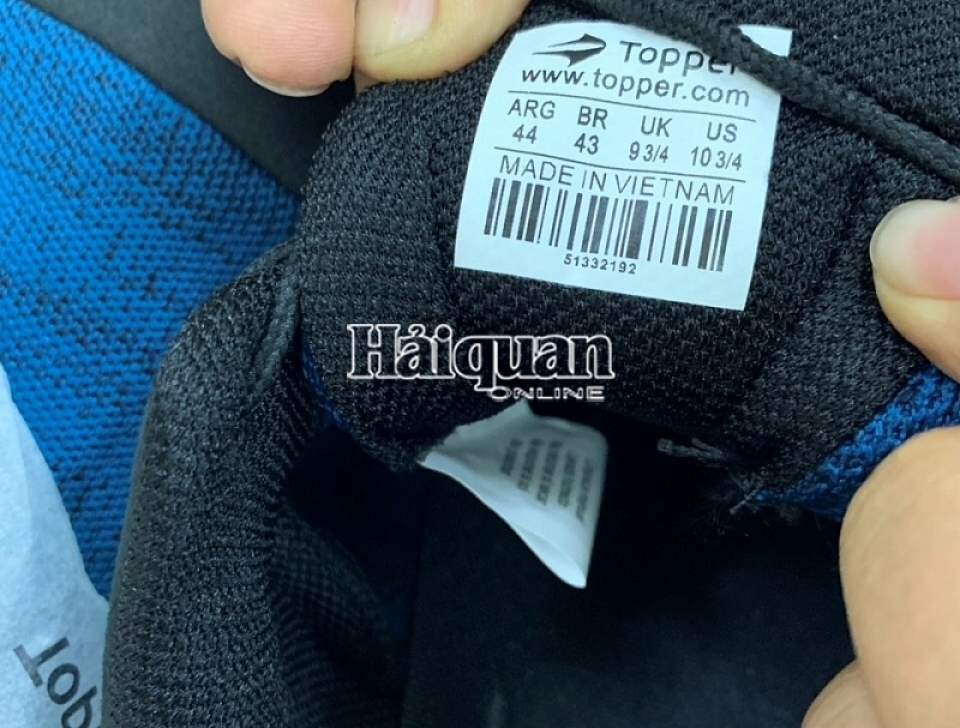AMENDING THE DECREE ON GOODS LABELLING, ADDING EXPORTED GOODS TO THE SCOPE OF REGULATION
One of the notable points in the draft decree amending and supplementing Decree 43/2017/ND-CP on goods labels that is being consulted on by the Ministry of Science and Technology is the addition of "exported goods" ” into the scope of regulation of the decree.
Topper-branded shoes are imported from China to Vietnam by businesses for further export to a third country, but the words "Made in Vietnam" are labeled on the product. The case was discovered and seized by the Hai Phong port area 1 Customs Branch (Hai Phong Customs Department) in 2019.
The drafting agency amending and supplementing Article 1 stipulating the scope of regulation of the decree (clause 1, Article 1 of the draft) as follows:
Article 1, the scope of regulation is that "this decree deals with information on good labels, presentation thereof and State management of labels for goods circulated in Vietnam, exported and imported goods...".
Compared with the current one, the draft decree adds exported goods to the scope of regulation of the decree.
According to the Ministry of Science and Technology, the reason is currently there is no legal document regulating the content of goods labelling for exported goods, presentation thereof of origin of exported goods leading to a lack of legal basis for implementation, inspection and handling.
Meanwhile, some firms have taken advantage of this mechanism to commit fraud of origin, falsely label products correctly to export goods to markets having a risk of applying trade remedies to Vietnam, affecting domestic industries.
The addition of exported goods to the scope of regulation is necessary to combat trade fraud, illegal transshipment and protect national interests.
However, specific regulations for good labels of exported goods are limited to the scope of stating the origin of goods to prevent trade fraud, other contents stated under contracts with importing organisations and individuals.
The draft also amends and supplements provisions for goods not covered by the decree. The addition of imported goods deposited into bonded warehouses for export to a third country is not within the scope of the decree (according to the Ministry of Finance).
At the same time, amending points on general regulations on building materials without packaging and sold directly to consumers are not within the scope of the decree (according to the Ministry of Construction).
Regarding the subject, there are also amendments and supplements. The subjects of regulation (Article 2) are specified in the draft as follows: This decree applies to organisations and individuals producing and trading goods in Vietnam; organisations and individuals exporting and importing goods; State authorities; relevant organisations and individuals.
Thus, the draft adds more regulated subjects including "exporting organisations and individuals".
The reason given by the drafting agency is that the draft decree adds the scope of regulation to include export goods, to synchronise with the scope of regulation and cover management subjects including exporting organisations and individuals.
Source: customs news





